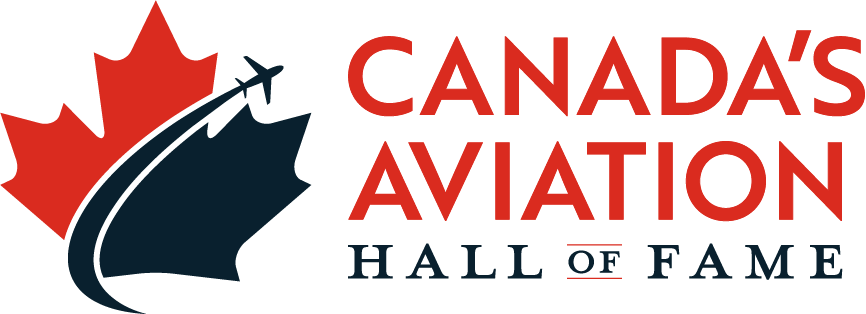John Emilius Fauquier

Nickname: Johnny
Birth Date: March 19, 1909
Birthplace: Ottawa, Ontario
Death Date: April 3, 1981
Year Inducted: 1974
Awards: DSO**; DFC; Croix de Guerre with Palm (France); Chevalier of the Legion of Honour (France)
His exceptional abilities as an airman and wartime operations commander set the highest standard of leadership and dedication to purpose and caused those whom he led to excel themselves, resulting in outstanding contributions to Canadian aviation
405 Squadron
John Emilius (Johnny) Fauquier, D.S.O.**, D.F.C., was born in Ottawa, Ontario, on March 19, 1909, educated at Ashbury College and then entered the investment business in Montreal, Quebec, where he joined a local flying club. After earning his Commercial Pilot's Licence he formed Commercial Airways at Noranda, Quebec. Prior to World War II, he had flown some 3,000 hours as pilot-in-command on bush operations.
Fauquier joined the Royal Canadian Air Force (RCAF) in 1939 as a Flight Lieutenant, completed an advanced course and served until mid-1941 instructing a group of British Commonwealth Air Training Plan (BCATP) instructors. After a short period in England at a glider and paratrooper training centre, he was posted to 405 Squadron and by February, 1942 had been promoted to Wing Commander and given command of the squadron. He was awarded the Distinguished Flying Cross (D.F.C.) for gallantry.
Shortly afterwards, Fauquier was seconded from operations to the RCAF's Overseas Headquarters for staff duties. He then served a short term with No. 6 Bomber Group, RCAF, before once again taking command of 405 Squadron. In 1943 he was promoted to Group Captain for his leadership of that squadron, which had become a member of 8 Pathfinder Group.
In 1940 Fauquier was one of many civilians who were contacted by Canada's Minister of National Defence to teach instructors at the RCAF Military Base at Trenton, Ontario, through the BCATP. He left behind a charter operation in the lower ASt. Lawrence region, and then went on to become one of the RCAF's outstanding bomber pilots.
An Epic Raid
On the night of August 17, 1943, Fauquier led an epic raid on the German rocket base at Peenemunde on the Baltic coast. He acted as deputy master bomber, making 17 passes over the target, guiding the waves of bombers to it. The base was destroyed, which delayed the use of these rockets by a full year. He was awarded the Distinguished Service Order (D.S.O.) with the following citation:
"This officer is a first-class leader whose skillful and courageous example has proved most inspiring. His sterling qualities were well illustrated during an operation against Peenemunde one night in August and again a few nights later in an attack on Berlin. Group Captain Fauquier has displayed boundless energy and great drive and has contributed, in large measure, to the high standard of operational
efficiency of the squadron he commands."
Back to 405
During January 1944, Fauquier completed his second tour of operations with 405 Squadron after flying 38 sorties. He was then awarded a Bar to his D.S.O. with the accompanying citation:
"This officer has commanded the squadron with notable success during the past nine months. He has frequently taken part in sorties against distant and well-defended targets, including several attacks on the German capital. He is a forceful and gallant leader whose outstanding ability and unswerving devotion to duty have been reflected in the fine operational work performed by the whole squadron. Group Captain Fauquier has set an example of the highest order."
617 (Dambuster) Squadron
In June 1944, after promotion to Air Commodore, which rank precluded his flying on operations, Fauquier voluntarily reverted to Group Captain so that he might begin a third tour of operations. This time he served as Commanding Officer of 617 (Dambuster) Squadron, Royal Air Force, which he led from December 1944. Subsequently he led them on raids against submarine pens, viaducts and the last of the German battleships, the Tirpitz. Under his command 617 Squadron dropped the first 22,000 pound (9,980 kg) 'Grand Slam' bombs from Lancaster bombers. To conserve the bombs, Fauquier developed the tactic of flying low near the target while the squadron released several bombs. As soon as the target was hit, he signaled the remaining bombers to return to base, with their bomb loads intact.
At the end of the war in Europe, Fauquier was awarded a second Bar to his D.S.O., the equivalent of three D.S.O.'s. He was the only Canadian officer to be so decorated, receiving the following citation:
"Since assuming command of 617 Squadron in December 1944, this officer has taken part in almost all of the aerial sorties to which the formation has been committed. Early in February 1945, Group Captain Fauquier led the squadron in an attack on the U-boat pens at Poortshaven. Photographs obtained showed that the bombing was accurate and concentrated. Since then, this officer has participated in a number of sorties, during which the railway viaduct at Bielefeld, a railway bridge over the river Weser at Bremen, and a viaduct, were all rendered unusable to the enemy. By this brilliant leadership, undoubted skill and iron determination, this officer played a good part in the successes obtained. He has rendered much loyal and valuable service."
The government of France awarded Fauquier the Croix de Guerre with Palm and named him a Chevalier of the Legion of Honour. At war's end he returned to private business. He died in Toronto on April 3, 1981.
John Emilius (Johnny) Fauquier was inducted as a Member of Canada's Aviation Hall of Fame in 1974 at a ceremony held in Edmonton, Alberta.
To return to the Inductee Page, please click here.
